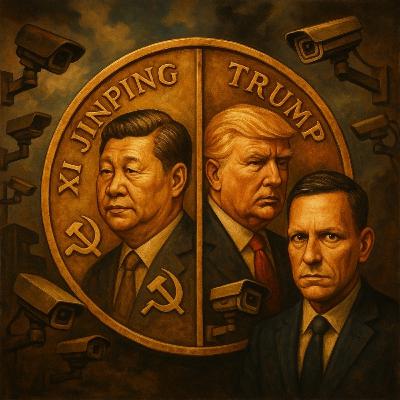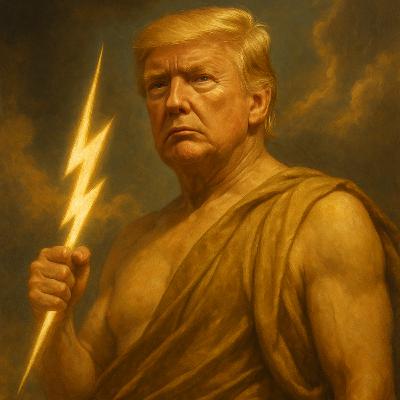Two Sides of the Same Coin
Description
When Silicon Valley and the CCP Start Speaking the Same Language
Let’s get real: the world’s two most powerful nations are building surveillance societies. The United States, under a new breed of techno-ideologues, is quietly constructing a digital control system that mirrors—sometimes eerily—the one perfected by the Chinese Communist Party (CCP). Pull back the curtain and you see the same machinery: data, algorithms, and the relentless drive to know, score, and shape every citizen. The difference? Only in branding and the stories we tell ourselves.
Peter Thiel: Architect of America’s Surveil-and-Punish
To understand this convergence, look at Peter Thiel—billionaire investor, PayPal co-founder, and intellectual godfather of the New Right. Thiel isn’t just a financier; he’s a philosopher-king for this era. His books, speeches, and investments have seeded a generation of politicians and policy architects who share his skepticism of democracy, faith in hierarchy, and obsession with managing human desire.
Thiel’s fingerprints are everywhere: from his early Trump support to his funding of “anti-woke” candidates and investments in the backbone of the American surveillance state. He bridges Silicon Valley’s monopolists and the populist Right—a connector of memes, money, and power.
Surveillance: The Water We Swim In
What we once imagined was only the CCP’s playbook is now American standard. The same tech used to track Chinese dissidents now monitors gig workers, protestors, immigrants, and minorities. Since 2016, US surveillance has expanded dramatically—not just at borders but in cities and online. Trump’s executive orders empowered DHS to scrape any “publicly available information”—tweets, Facebook posts, even private messages. The chilling effect was immediate: people self-censored, deleted posts, and warned each other that “anything you say can be used against you.”
The Memetic Engineering Complex
Social media doesn’t just sell ads—it sells influence. Its algorithms maximize engagement by amplifying outrage, envy, and tribalism. Since 2016, these platforms have become tools for both state and mob enforcement of ideological conformity. Predictive policing powered by social media data has monitored protests and flagged “agitators”—an approach straight from the CCP’s dissent-control manual.
State-Corporate Fusion
In China, tech companies must share everything with the state. In the US, the state contracts it out, but the effect is similar: a seamless flow of data from your phone to power. The “public-private partnership” is the new Leviathan—and it’s bipartisan. Thiel’s investments in Palantir and Facebook are the logical extension of his belief in hierarchy and the management of desire. Trump’s circle sees these tools as the way to restore “order” and “greatness,” even while railing against “big tech.”
Targeting the Outsiders
The CCP’s surveillance of Uyghurs is notorious. In the US, ICE used social media monitoring to build deportation cases—even for US citizens with immigrant ties. The logic is the same: identify, isolate, neutralize. Only the branding differs.
Harmony vs. Order
The CCP talks about “harmony” and “national rejuvenation.” Trump and the New Right talk about “order” and “greatness.” Both are code for control—managing risk and channeling the violence of mimetic desire away from power. Thiel’s skepticism of democracy mirrors the CCP’s distrust of pluralism. Both see the crowd as dangerous, the individual as a threat.
Denial and Camouflage
The CCP is honest about its authoritarianism. The US cloaks it in “law & order” and “border security”—but the surveillance engine hums the same tune.
No Place to Hide
In the end, the line between “free” and “unfree” blurs. The only real question is who pulls the levers—and whether we can imagine a world where data empowers rather than imprisons.
























